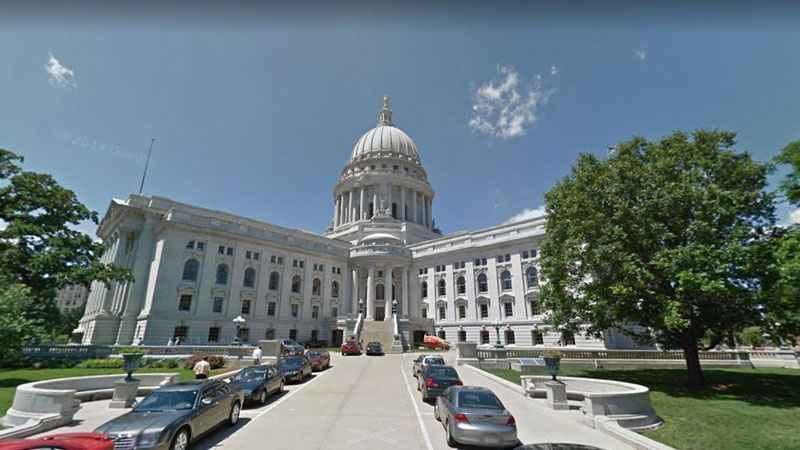Wisconsin mayors targeted amid GOP-ordered election probe

[Google Maps ]
The Republican-hired attorney investigating the 2020 election told Wisconsin lawmakers during a testy hearing Wednesday he has filed a lawsuit to force officials in Green Bay and Madison to provide testimony.
Meanwhile, the state’s embattled elections commission debated whether to follow key recommendations made in a recent nonpartisan audit.
The simultaneous meetings come as Republicans in Wisconsin are increasing the pressure on election officials. Lawmakers have called for the resignation of the state’s nonpartisan top election administrator and a sheriff who supports Donald Trump called for prosecuting five of the commission’s six members.
President Joe Biden beat Trump by nearly 21,000 votes, an outcome that has withstood recounts, lawsuits and Republican attempts to cast doubt on the integrity of how the election was run. False claims of widespread fraud have not been proven, with just five people out of more than 3 million who cast ballots in 2020 charged with election fraud.
The former conservative Wisconsin Supreme Court justice hired by Republican Assembly Speaker Robin Vos to investigate the 2020 election testified before a GOP-controlled Assembly elections committee. It marked the second time in less than a month that Michael Gableman briefed the panel.
Gableman said he’s trying to determine whether government officials in Wisconsin’s five largest cities used grants funded by Facebook founder Mark Zuckerberg to support Biden. He said he suspects the officials followed a plan outlined in a book entitled “A Citizen’s Guide to Beating Donald Trump” by David Plouffe, former President Barack Obama’s campaign manager.
Gableman said he filed lawsuits Monday seeking to force Green Bay Mayor Eric Genrich and Madison Mayor Satya Rhodes-Conway to submit to depositions because they have “simply failed without reason or excuse to appear.”
Online court records did not list the lawsuits. Madison City Attorney Michael Haas said he hasn’t heard anything about such a lawsuit. Green Bay Interim City Attorney Joanne Bungert didn’t immediately respond to email and voicemal messages.
Gableman pushed back against Democrats’ criticisms that the probe has been too secretive. He listed everyone working for him and their salary rates. Gableman said so far he has spent about $175,000 of the $675,000 that Assembly Republicans authorized for the investigation in August. He also promised to publicly release documents by Friday that won’t “compromise” the investigation.
The former justice told the committee that he has now provided the transparency Democrats have demanded and it’s time for election officials to do the same and cooperate with him. He got into shouting matches with Democratic Reps. Mark Spritzer and Jodi Emerson, accusing them of ignoring his invitations to meet with him.
Emerson shot back that she has a hard time believing what’s coming out of his investigation. Spreitzer accused him of hiring conservatives looking to remove Biden from office.
“Stop making things up, Mark,” Gableman cut him off. “Your constituents deserve better. Shame on you.”
“Shame on you!” Spreitzer fired back.
As Gableman testified at the state Capitol, the state elections commission met over Zoom to discuss a nonpartisan audit released last month that made 48 recommendations for improving how elections are run in the state. Thirty of those were for the commission to consider and the rest were possible law changes for the Legislature.
Given that the panel is evenly divided between Republicans and Democrats, no significant changes were expected to be adopted Wednesday to its current operations or guidelines issued to the more than 1,800 local officials who actually run elections.
The commission agreed on bipartisan votes to make some relatively minor recommendations made in the audit, but weightier and more divisive topics awaited.
Republican commissioner Dean Knudson said the audit provided some “constructive criticism” but also faulted it for factual errors and “pettiness” on such issues as recommending enacting a rule to refer to the state voter registration system by its brand name, rather than a generic term.
The Audit Bureau also did not allow the elections commission to submit a response that is included when the report is released, a step that is routinely done for other audits.
“They actually acted in an unprofessional manner in this case,” Knudson said of the audit bureau. “That’s disappointing.”
While some Republicans pointed to the audit as evidence that Wisconsin elections were safe and secure because it did not find any evidence of widespread fraud or abuse, others have said it shows that the commission willfully broke the law during the coronavirus pandemic in 2020.